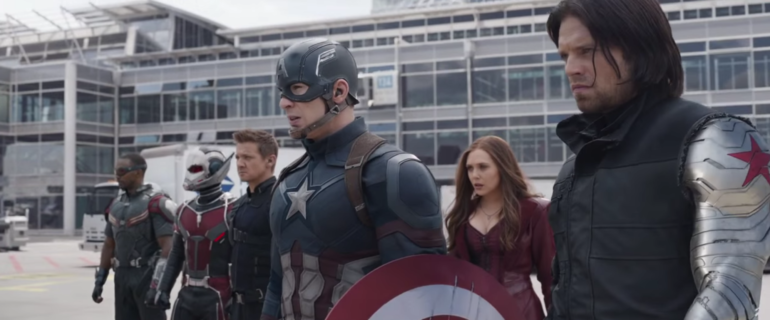The Marvel Cinematic Universe is undergoing a seismic shift. From uncertain beginnings back in 2008 with the introduction of Robert Downey Jr. as Iron Man, the series has grown, matured and, crucially, learned from its missteps. Now, 12 films later, we find ourselves in uncharted waters as we kick off Phase 3 of their grand master plan, and on the horizon lies a reckoning for earth’s mightiest heroes.
Serving as a direct sequel to both Captain America: The Winter Soldier and Avengers: Age of Ultron, Captain America: Civil War draws on the events of the previous superhero team-ups and injects the overall arcing story with some murky morality as the Avengers are forced to finally confront the consequences of their actions and take responsibility for the destruction left in their wake.
After a mission incurs casualties in Africa, the United Nations decide to draw up an accord that would restrict the Avengers in the use of their powers and ultimately decide when and if they can deploy. This impending oversight exposes some deep-seated frailties that already existed within the group dynamic, and a fractious rift begins to split alliances from within, while the mysterious Zemo (Daniel Bruhl) orchestrates some chaos of his own for the Avengers.
Retaining directorial duties from Captain America: The Winter Soldier are Anthony and Joe Russo, who manage to once again raise the bar for dazzling, kinetic set-pieces. Make no mistake, this movie is the pinnacle of spectacular superhero action, boasting not only the most audacious, dizzying battle Marvel have committed to film, but also the most deeply resonant; a brutal, sparse finale that delivers a gut-punch of emotion.

The secret to the success of the Russo brother’s film is a sharply written script, which had the unenviable task of balancing more than a dozen major characters, setting up a reasoned story arc to move forward towards Infinity War and muddying the moral high ground on which Steve Rogers and Tony Stark stand. Credit to writers Christopher Markus and Stephen McFeely who have not been found wanting. The pair have crafted a story in which the team conflict feels organic because Rogers and Stark, though resolutely divided, are both justified in their actions.
Integral to it all is the dynamic between Steve, Tony and Bucky Barnes. The Winter Soldier is given a meatier role this time round and for all the blistering action, his relationship with Steve Rogers is the film’s beating heart. Downey Jr, Chris Evans and Sebastian Stan have never been better in their roles, but they still manage to be upstaged by the two newcomers to the franchise. Chadwick Boseman immediately encapsulates the raw power and ferocious intensity of Black Panther without the need for a wearisome back-story, while the rebooted Spider-Man, now fleshed out by Tom Holland, is a revelation. Funny, charming, lithe and strong, he is everything fans of the web-slinger have been crying out for and he absolutely steals the show.
In Captain America: Civil War, Anthony and Joe Russo have delivered Marvel’s most confident film to date. A complex, thrilling crowd-pleaser that proves intelligent and emotional storytelling don’t have to be benched to squeeze in astonishing action. Whether you were Team Cap or Team Iron Man going in won’t matter a damn…once the battle lines have been crossed and the dust has settled, you’ll leave exhilarated, elated and having witnessed the closest thing cinema has gotten yet to a perfect comic-book movie.

